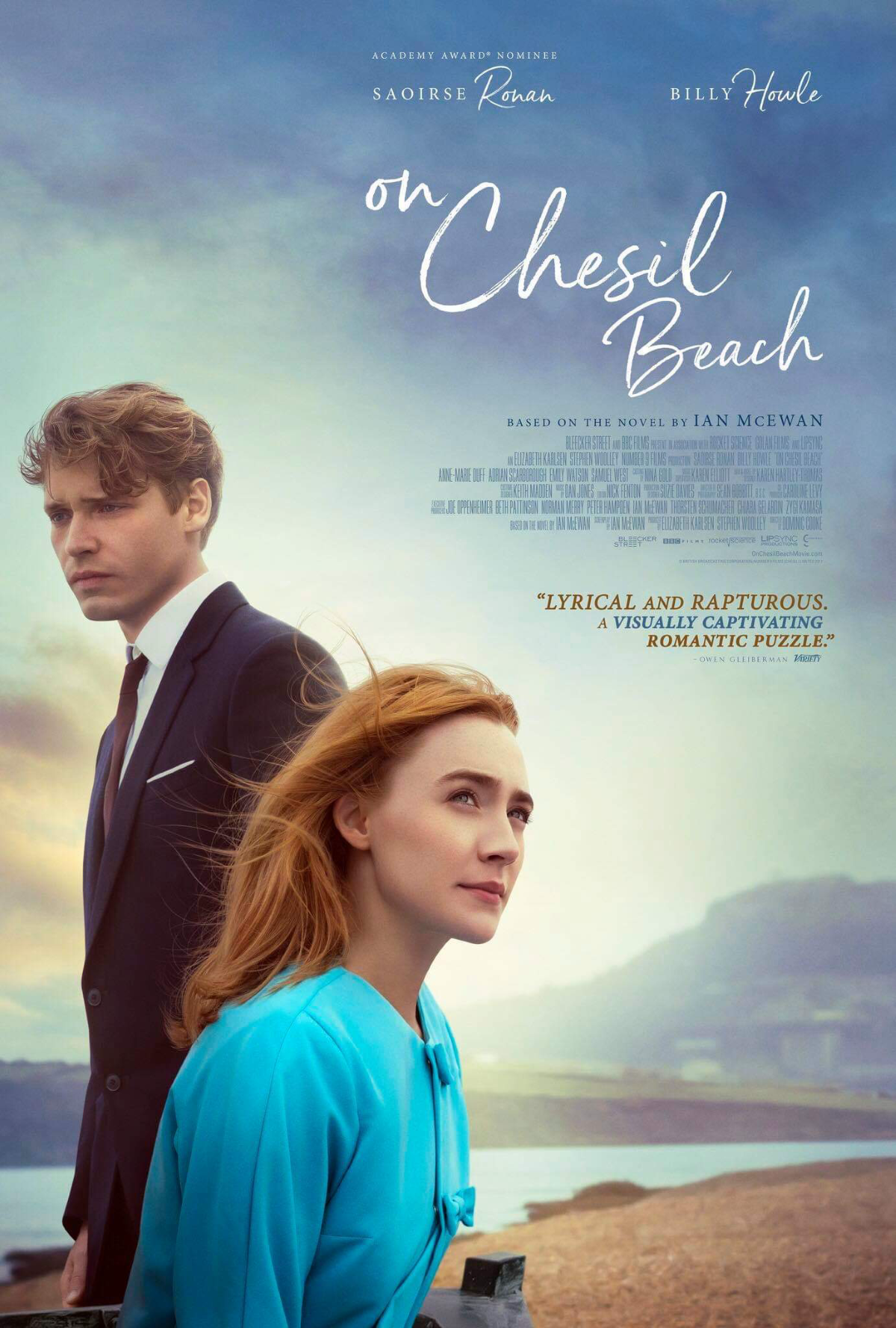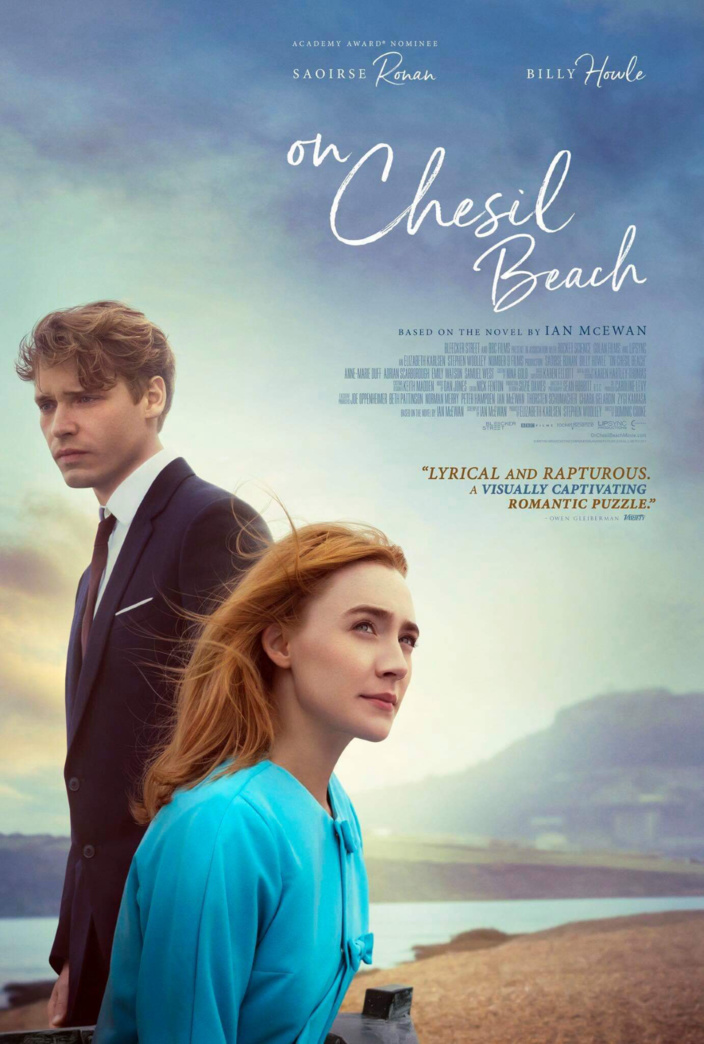This book had been standing on my book shelf for many years pleading with me to pick it once, just once. Alas I never actually did. I have also forgotten how many years ago the book talked to me, just too many, to recall. I never had this special courage to attack it, may be, a lack of interest generally, and this total personal bias for Asian writers with whom I felt, I supposedly belonged to, exclusively. Utter nonsense of course.
We belong to no one, and no group. These are old programs of my childhood, that I need and needed to delete. I was always wrong about Asian writers, thinking we spoke the same language, had the same conflicts, and dilemmas about karma and dharma. This was of course a communal bunker-like mentality. Delete program. This is why I had altogether missed McEwan !
This current movie adaptation of the book, comes to me at a time of great tragic and personal upheaval in my life. A shattered marriage because of sad misunderstandings, and misgivings, and great pain caused to one another. Fortunately there is, and has always been the world of Art to heal oneself.
McEwan weaves a stunning meditation on the essence of love, that should in fact enter the pantheon of greatest ever-told love stories, if ever there was such a thing to marvel at, like the great Pantheon de Paris.
Emily Watson (as Florence) and Saoirse Ronan (as Edward) are sublime as coming-of-age teenagers falling madly in love in the 60’s, this age of the bouncing Chuck Berry, Elvis Presley and elite Chamber Music orchestras. The divide between upper and lower classes was real and vivid, in that generation, such that the parents of Florence would directly ask of her, is he working class or not?
This was the age of an England, emerging from the grips of World War, and falling right into the grip of the Cold War, with allusions in the movie to the Berlin Wall and the isolationist policies of the Western Block vs the Soviet Block. Florence falls in love with Edward at first sight. He lives with his middle class family, as they nurse themselves back to new life, tending to a mother affected mentally, as a result of a freak train accident. Edward also emerges as a brilliant young man, when he realizes in a strange epiphanic sequence, that he was mentally very stable, and his mother was simply not. So one might as well live to thrive with the gift of a sound mind.
He of course rises gladly to the occasion with a first class degree in history, and as reward, meets Florence at a University gathering. The flashbacks of the key moments of the flourishing of this transcendental love story is beautifully and sensitively executed to the letter, in the movie. Stolen kisses and long journeys taken by Florence to visit him in Hensley, are poignant key moments, testament of the chemistry of the deepest of loves between two impermanent and frail beings. Like Florence tells him much later, we can liberate ourselves, by simply and purely loving one another till death.
Destiny had other plans in store for our dear lovers, and i will not dwell on it here, so as not to spoil the movie for everyone. They both love each other dearly, this is a given testimony throughout the movie and is palpable to all. As a result of a horrible misunderstanding, a tragedy, that happened to her and was much beyond her control, the marriage is not consummated, which results in a spur-of the-moment shatter, just like a glass falling insipidly off one’s hand.
Despite the shock of the moment, McEwan in his poetic coup de grace, and genius, eternalizes the bonds of love between these two beings. Despite the unfortunate break, love persists in their sensual hearts, and grows ever strong. We see it in the facial contortions of Edward, as we meet him later in life. Florence is gone away from his life but also, somehow very present.
Despite distances, estrangements and massive gulfs of time, love has indeed persisted and survived. Edward has moved on from menial jobs to become an old man. Florence has meanwhile become a world renowned violinist. They meet at the dawn of their lives, as they had promised themselves many years ago in their prime years, at the same concert hall. The very last show on earth. Florence is giving her final quintet chamber concert, and Edward is now present in the audience.
They exchange glances, and in the genius of this piece of monumental movie-making imagery, the onlooker (we) know that deep love, though non-consummated, was very alive and thumping. It seems to have transcended time, age, and death, and presents itself anew, afresh, and further escapes sorrow. Such is the beauty of Art and the human love it projects and sculpts, for all life to breathe and subsist on. McEwan is a giant and a poet of love. A movie to be cherished for ages to come.
A propos de l'auteur : Rattan Gujadhur left Mauritius for higher studies in the US in 1999. He has practiced in the Pharma and Biotech world for over 29 years and is a Dr in Chemistry. He remains deeply in love with Mauritius and has published reminiscences of Mauritius via a poetry collection and a novel
We belong to no one, and no group. These are old programs of my childhood, that I need and needed to delete. I was always wrong about Asian writers, thinking we spoke the same language, had the same conflicts, and dilemmas about karma and dharma. This was of course a communal bunker-like mentality. Delete program. This is why I had altogether missed McEwan !
This current movie adaptation of the book, comes to me at a time of great tragic and personal upheaval in my life. A shattered marriage because of sad misunderstandings, and misgivings, and great pain caused to one another. Fortunately there is, and has always been the world of Art to heal oneself.
McEwan weaves a stunning meditation on the essence of love, that should in fact enter the pantheon of greatest ever-told love stories, if ever there was such a thing to marvel at, like the great Pantheon de Paris.
Emily Watson (as Florence) and Saoirse Ronan (as Edward) are sublime as coming-of-age teenagers falling madly in love in the 60’s, this age of the bouncing Chuck Berry, Elvis Presley and elite Chamber Music orchestras. The divide between upper and lower classes was real and vivid, in that generation, such that the parents of Florence would directly ask of her, is he working class or not?
This was the age of an England, emerging from the grips of World War, and falling right into the grip of the Cold War, with allusions in the movie to the Berlin Wall and the isolationist policies of the Western Block vs the Soviet Block. Florence falls in love with Edward at first sight. He lives with his middle class family, as they nurse themselves back to new life, tending to a mother affected mentally, as a result of a freak train accident. Edward also emerges as a brilliant young man, when he realizes in a strange epiphanic sequence, that he was mentally very stable, and his mother was simply not. So one might as well live to thrive with the gift of a sound mind.
He of course rises gladly to the occasion with a first class degree in history, and as reward, meets Florence at a University gathering. The flashbacks of the key moments of the flourishing of this transcendental love story is beautifully and sensitively executed to the letter, in the movie. Stolen kisses and long journeys taken by Florence to visit him in Hensley, are poignant key moments, testament of the chemistry of the deepest of loves between two impermanent and frail beings. Like Florence tells him much later, we can liberate ourselves, by simply and purely loving one another till death.
Destiny had other plans in store for our dear lovers, and i will not dwell on it here, so as not to spoil the movie for everyone. They both love each other dearly, this is a given testimony throughout the movie and is palpable to all. As a result of a horrible misunderstanding, a tragedy, that happened to her and was much beyond her control, the marriage is not consummated, which results in a spur-of the-moment shatter, just like a glass falling insipidly off one’s hand.
Despite the shock of the moment, McEwan in his poetic coup de grace, and genius, eternalizes the bonds of love between these two beings. Despite the unfortunate break, love persists in their sensual hearts, and grows ever strong. We see it in the facial contortions of Edward, as we meet him later in life. Florence is gone away from his life but also, somehow very present.
Despite distances, estrangements and massive gulfs of time, love has indeed persisted and survived. Edward has moved on from menial jobs to become an old man. Florence has meanwhile become a world renowned violinist. They meet at the dawn of their lives, as they had promised themselves many years ago in their prime years, at the same concert hall. The very last show on earth. Florence is giving her final quintet chamber concert, and Edward is now present in the audience.
They exchange glances, and in the genius of this piece of monumental movie-making imagery, the onlooker (we) know that deep love, though non-consummated, was very alive and thumping. It seems to have transcended time, age, and death, and presents itself anew, afresh, and further escapes sorrow. Such is the beauty of Art and the human love it projects and sculpts, for all life to breathe and subsist on. McEwan is a giant and a poet of love. A movie to be cherished for ages to come.
A propos de l'auteur : Rattan Gujadhur left Mauritius for higher studies in the US in 1999. He has practiced in the Pharma and Biotech world for over 29 years and is a Dr in Chemistry. He remains deeply in love with Mauritius and has published reminiscences of Mauritius via a poetry collection and a novel








